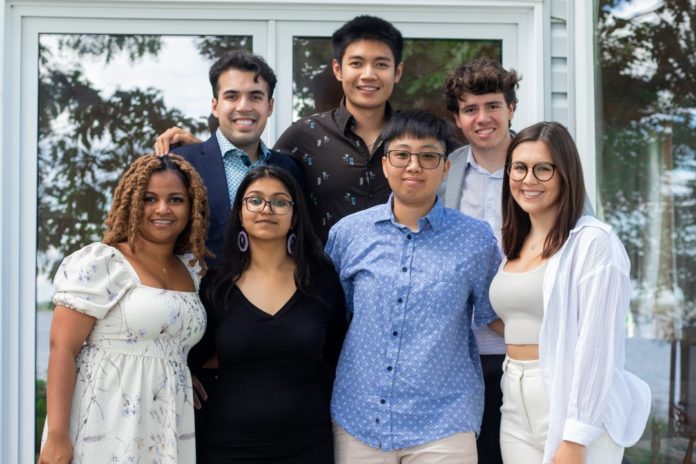
The Government of New Brunswick announced in October they would eliminate interest on provincial student loans, something the New Brunswick Student Alliance has been advocating towards for years.
Although the NBSA advocates for post-secondary students, many don’t know of the organization or what it stands for. The Aquinian’s features editor, Jacob Moore, gathered up the information to answer these questions.
What is the New Brunswick Student Alliance?
According to Alex Nguyen, vice-chair of the NBSA and president of the St. Thomas University Students’ Union, the organization advocates to “provincial governments and community stakeholders” on behalf of New Brunswick students.
The NBSA is made up of members from the student representative councils of three universities: Mount Allison University, University of New Brunswick Saint John and St. Thomas University. The executive director is the only staff member and not part of one the student representative councils.
The NBSA advocates on behalf of over 6,000 students from these institutions.
What is the NBSA advocacy week?
Nguyen and other members of the NBSA had meetings from Nov. 14 to Nov. 18 with policymakers and stakeholders.
“Advocacy week focuses on bringing forward student concerns on different issues,” said Nguyen. “This is important to have these kinds of meetings to ensure that everyone understands this is what students want.”
To each of these stakeholders, the NBSA presented its seven main policy recommendations, which it outlines in its advocacy document, “Creating a Clear Pathway for the Future of Post-Secondary Education in New Brunswick.”
Each day of advocacy week, the organization’s members held two to four meetings with stakeholders. Stakeholders then gave feedback on policy recommendations as well.
“They will help us bring our advocacy to the provincial government whenever they meet them because we’re not going to be in the room when these things happen,” said Nguyen.
Which policies are they recommending and why?
This year, the NBSA wanted to focus on these areas:
- Equity, diversity and inclusion
- Mental health
- Sexual violence
- Housing
- International students
- University funding
- Financial supports
Following the STUSU More Than Tuition campaign that took place earlier this year, the NBSA aims to highlight that student needs go beyond tuition and university fees.
Housing, for instance, is a big problem for students in the aftermath of the COVID-19 pandemic and ongoing inflation, based on data collected by STUSU from its recent survey to understand student concerns.
There were 267 responses to that survey. Housing and food security was a primary concern, with 137 students expressing their concerns about the rising cost of living.
According to Sydona Chandon, executive director of the NBSA, members of the NBSA determined their focus areas for advocacy week based on student feedback from all three universities.
“These are boards of directors who have met with their students on campus and have heard what the issues are. From the research standpoint, we’ve compiled everything and checked to make sure this is evidence-based,” said Chandon.

How successful were the meetings?
Chandon, who is also a STU alumna, said she is “relatively satisfied” with the work she witnessed during advocacy week.
“One of the aspects we saw high responses and support to was the housing element because we see where students are facing a housing crisis,” said Chandon.
One of NBSA’s policy recommendations was “to call upon the Government of New Brunswick to extend the rental cap period to an additional year.”
Nguyen added that some stakeholders will reject NBSA’s suggestions.
“Members of business communities do not like our rental cap because it’s bad for business, but we’re advocating for students,” said Nguyen.
An amendment to the Residential Tenancy Act, introduced Nov. 24, would not extend the rent cap. The current rent cap, which prevented landlords from increasing rent beyond 3.8 per cent, expires Dec. 31, according to an article by the CBC.
In an emailed statement, Chandon said the NBSA is disappointed that the government did not extend the rent cap, but the organization will continue to advocate for affordable student housing.
“We recognize the severe impact this has on students but assure students we will continue to do all in our power to make the university experience more attainable,” said Chandon.
